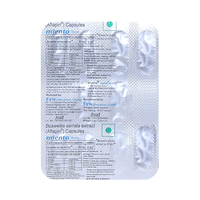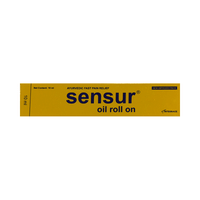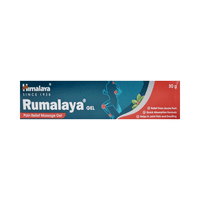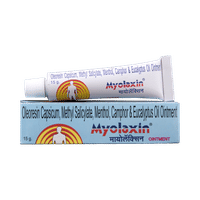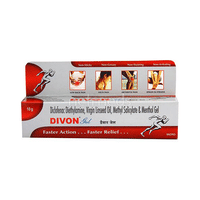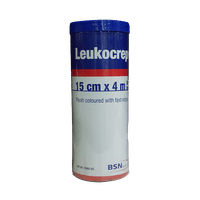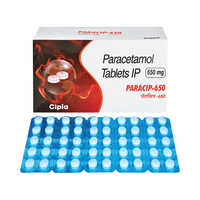food interaction for Lavclor
alcohol interaction for Lavclor
pregnancy interaction for Lavclor
lactation interaction for Lavclor
food
alcohol
pregnancy
lactation
Lavclor Tablet may be taken with or without food.
None
None
CAUTION
Alcohol should be used with caution while taking Lavclor Tablet.
CAUTION
Lavclor Tablet is highly unsafe during pregnancy. It can cause serious harm to the unborn baby, including birth defects and pregnancy loss. Do not use this medicine if you are pregnant or planning to become pregnant.
UNSAFE
Lavclor Tablet should be used with caution during breastfeeding. Breastfeeding should be held until the treatment of the mother is completed and the drug is eliminated from the body.
CAUTION
SALT INFORMATION FOR Lavclor
Chloroquine(NA)
Uses
Chloroquine is used in the treatment of malaria.
How it works
Chloroquine is an antiparasitic medication that treats malaria. It works by increasing the levels of haeme in the blood, a substance toxic to the malarial parasite. This kills the parasite and stops the infection from spreading.
Common side effects
Rash, Headache, Vomiting, Nausea, Ringing in ear, Urticaria, Hepatitis (viral infection of liver), Increased liver enzymes, Photosensitivity, Convulsion, Hemolytic anemia, Low blood platelets, Decreased white blood cell count (neutrophils), Visual disturbance, Prolonged QT interval, Muscle damage, Anaphylactic reaction, Aplastic anemia, Hypotension (low blood pressure), Retinopathy, Decreased blood cells (red cells, white cells, and platelets), Arrhythmia (irregular heartbeats), Cardiomyopathy (heart muscle disease)
Primaquine(NA)
Uses
Primaquine is used in the treatment of malaria.
How it works
Primaquine is an antiparasitic medication that treats malaria. It works by increasing the levels of haeme in the blood, a substance toxic to the malarial parasite. This kills the parasite and stops the infection from spreading.
Common side effects
Epigastric pain, Abdominal cramp, Decreased white blood cell count (lymphocytes), Hemolytic anemia, Arrhythmia (irregular heartbeats), Qt interval prolongation, Nausea, Vomiting, Dizziness, Itching, Rash
SUBSTITUTES FOR Lavclor
No substitutes foundExpert advice FOR Lavclor
- Chloroquine is used for the prevention and treatment of malaria.
- Take it with food to decrease the risk of stomach upset.
- Tips to reduce the chance of being bitten by mosquitoes:
- Wear light-colored and covered clothing when you are outside after sunset.
- Use insect repellent creams or sprays on parts of your body not covered by clothing.
- Spray to kill any mosquitoes that may have entered rooms despite screening.
- It may cause a blurring of vision when you first start taking it. Use caution while driving or doing anything that requires concentration.
- Eye examination before and at 3–6 monthly intervals during use is required if patients are receiving Chloroquine at continuous high doses for a longer duration.
- It may cause low blood sugar levels. Monitor your blood sugar level regularly, if you are diabetic.
- When used long-term, your doctor may monitor the amounts of the different types of blood cells in your blood regularly. Inform your doctor if you have unexplained bruising or bleeding, sore throat, fever, or a general feeling of tiredness.
- Chloroquine is used for the prevention and treatment of malaria.
- Take it with food to decrease the risk of stomach upset.
- Tips to reduce the chance of being bitten by mosquitoes:
- Wear light-colored and covered clothing when you are outside after sunset.
- Use insect repellent creams or sprays on parts of your body not covered by clothing.
- Spray to kill any mosquitoes that may have entered rooms despite screening.
- It may cause a blurring of vision when you first start taking it. Use caution while driving or doing anything that requires concentration.
- Eye examination before and at 3–6 monthly intervals during use is required if patients are receiving Chloroquine at continuous high doses for a longer duration.
- It may cause low blood sugar levels. Monitor your blood sugar level regularly, if you are diabetic.
- When used long-term, your doctor may monitor the amounts of the different types of blood cells in your blood regularly. Inform your doctor if you have unexplained bruising or bleeding, sore throat, fever, or a general feeling of tiredness.
Frequently asked questions FOR Lavclor
Chloroquine
Q. What is Chloroquine and what it is used for?
Chloroquine is an anti-malarial medicine that is used for the treatment and prevention of malaria.
Q. How long does it take for malaria symptoms to show?
Symptoms of malaria can develop as quickly as 7 days after you are bitten by an infected mosquito. Usually, the symptoms may take up to 7 to 18 days to appear (incubation periods) from the day of the infection. Initial symptoms of malaria are flu-like which include feeling hot and shivery, fever, muscle pains, vomiting, headaches, and diarrhea.
Q. Is it safe to use Chloroquine for a long period of time?
If your doctor has prescribed you Chloroquine for a longer period of time, you should get your eyes checked regularly. This is because chloroquine present in this medicine might cause blurred vision, difficulty reading (due to words disappearing), and a rare eye condition called retinopathy if taken for a longer period of time.
Primaquine
Q. Who should not use Primaquine?
Use of Primaquine should be avoided in patients who are allergic to Primaquine or any of its components. However, if you are not aware of any allergy or if you are using Primaquine for the first time, consult your doctor.
Q. What should I tell my doctor before starting treatment with Primaquine?
Before starting treatment with Primaquine, inform your doctor if you have any other health problems (related to kidney or heart). This is because certain medical conditions may affect your treatment and you may even need dose modifications. Also, let your doctor know about all the other medicines you are taking because they may affect, or be affected by, this medicine. Inform your doctor if you are pregnant or breastfeeding.
Q. Is Primaquine safe?
Primaquine is safe if used in the dose and duration advised by your doctor. Take it exactly as directed and do not skip any dose. Follow your doctor's instructions carefully and let your doctor know if any of the side effects bother you.















